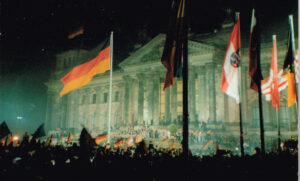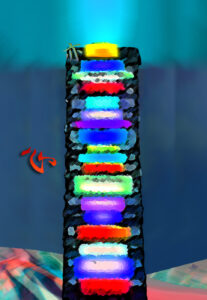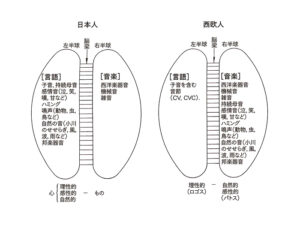Cadenza | A young cellist who shed tears while playing Rachmaninoff’s Sonata | Mariko Okayama
A young cellist who shed tears while playing Rachmaninoff’s Sonata
Text by Mariko Okayama
Photos by (C) SHIN ENSOKA KYOKAI CONCERT MANAGEMENT
Translated by Eiko Sudoh
On the first page of the Asahi Shimbun on February 26, Ukrainian soldiers set guns up on the street in preparation for the Russian invasion in Kyiv, the capital of Ukraine. Since childhood, I have vaguely felt that the fundamental problems between people can’t be solved by principles or regimes, so I couldn’t get rid of the feeling even at the fall of the Berlin wall and the collapse of the Eastern Bloc, although I thought it good to sing Beethoven’s Ode to Joy*) at that time.
What is a good life or happiness? Of course, we have to work hard for a better life by fixing social structural defects, but that is not enough. The question “what should I do?” comes to me everytime I notice that there are what have changed but have not been able to change. For example, when I saw, on the way to the “Prague Spring Music Festival” before the Velvet Revolution by bus from Vienna, the scenes over the window which drastically changed along the boundary made of a single iron wire (east-west border line) extending over the wheat field, and when I heard the conversation between the people of East and West Germany containing various thoughts after the fall of the wall.
When I was a child, I hated the outdoor game called “Jintori” with neighbor children, in which we were divided into two teams and tried to scramble each other’s territory (become a prisoner if touched by an enemy). Why is everyone so enthusiastic about competing for power?
The other day, when I played my grandchildren’s favorite digital game just once, I thought that the feeling of enjoying lightly and quickly “defeating” enemies with pico-pico gaming sounds was the same as the feeling at the “Jintori”.
All conflicts arise from human desires, and I always become depressed facing the difficulty of taming them.
Oh, why again… I turned away from the TV news concerning Ukraine.
In the afternoon of the day, I went to the recital for the winners of the Tokyo Music Competition at the Tokyo Bunka Kaikan in Ueno. Under the warm sunshine, many people talked in twos and threes with vibrant smiles around the station near the hall.
At first, Schumann’s “Adagio and Allegro”. What a sweet lyricism! Smooth sounds by cello (Hideaki Fujiwara) and piano (Yukino Kaihara) were tracing the longing of this poet who hold Florestan and Oisebius in his mind.
I was convinced to read the program that said Fujiwara studied under Kenji Nakagi. I had just listened to this work played by Nakagi’s well-singing cello. It was the first time I heard his solo, since I had found him singing along with M. Brunello in the cello section of Kioi Hall Chamber Orchestra in 2018.
How to sing cannot be taught, but songs can be passed on by the music itself. Fujiwara had a deeper vibrato than Nakagi’s, so it sounded even more emotional.
The next work, Janacek’s “Fairy Tale” was also wonderful. This is an amazing love story between Prince Ivan and Princess Maria holding plenty of Moravian wild scent. The responses of the cello to the piano were splendid. Rabbit-like pizzicato, relaxed melody line, and the remarkably changing expressions were the fairy tale itself, so enjoyable like turning pages.
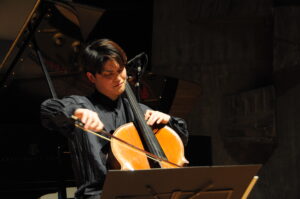 Next, Prokofiev’s “Sonata”. Low-pitched melodies of the cello rose from the deep sea giving a quiet shine. The continuous keystrokes of the piano were reminiscent of a military march, while the creaking sounds of the string were jumping. Suddenly the lovely phrases were falling from the sky, and the singing voices with plenty of fresh air were spreading. It was also an undulating performance, but occasionally black sound rubbles shot in my ears with anxiety. In the second movement, light and crisp sounds made Prokofiev’s witness dancing.
Next, Prokofiev’s “Sonata”. Low-pitched melodies of the cello rose from the deep sea giving a quiet shine. The continuous keystrokes of the piano were reminiscent of a military march, while the creaking sounds of the string were jumping. Suddenly the lovely phrases were falling from the sky, and the singing voices with plenty of fresh air were spreading. It was also an undulating performance, but occasionally black sound rubbles shot in my ears with anxiety. In the second movement, light and crisp sounds made Prokofiev’s witness dancing.
However, it was “Fujiwara”. He couldn’t stop singing. So, I found it “painful” for contemporary composers to forbid songs(singing) after the two World Wars. Inwardly, atonal and twelve-note composers would have wanted to sing a song, like Schubert. Did anyone even say, “To write songs after Auschwitz is barbaric”? (I’m an expert of Japanese contemporary composers).
During the break, the question that occupied my head while I looked at the bright sky from the windowpane in the lobby was “What is singing?”. On the other hand, I couldn’t help thinking of the age of Prokofiev.
Various things came across my mind such as ー Berlin where these young musicians learned, the Brandenburg Gate I went to two years after the fall of the Berlin Wall, the pieces of the wall sold beside the gate, the sunflower-like parabolic antennas lined up in the eastern apartments, and the light pop music melodies in the dark underground restroom.
Rachmaninoff’s “Sonata” was played in the second half.
This is a work that is fully stuffed with the longing passion and songs of this composer who fled to the United States. Around the disturbing atmosphere of the second movement which showed me the shadow of Schubert’s “The Erlking”, I began to be shaken by mysterious emotions. Singing, singing, the fully singing song by Fujiwara swallowed me, and in the whirlpool of his singing, the soldiers I saw this morning appeared in my eyes.
Janacek, Prokofiev and Rachmaninoff, whose homeland and the people lived there each had a miserable history. However the “Prague Spring Music Festival” welcomed Rafael Kubelík, who had been in exile, and he played “My Homeland” with the Czech Philharmonic in 1990, three years after I visited the festival.
When I went to listen to Teizo Matsumura’s “Piano Concerto No. 2” at the Soviet International Music Festival (1988), the young composers came by me to get information and connections to the west, being afraid of the eyes of spies (such as passed a piece of paper with contact information written on it to me in secret). At the festival, there was also an ambitious young Gergiev (he was the Munich Philharmonic Chief Conductor.This orchestra fired him because he was Putin’s defender on March 1st).
Not only in the world of the Cold War, divisions are still everywhere visibly and invisibly.
These things burst into my heart at once.
Then,
I noticed that something was happening in Fujiwara.
At the end of the third movement, in the endlessly gushing song … was he crying?
Sniffing his nose, he wiped his nose with his hands occasionally in a slight interval.
What happened?
But the music was still overflowing and he just kept singing.
Staring at him, I finished listening to the final movement and the last note.
He stood up, bowed a little ashamedly, muttered something at the pianist, and went away from the stage.
He came out again and said something without a microphone, but I, in the back seat, could only hear words like “I’m sorry I couldn’t control my emotions”. What made him do so?
Rachmaninoff’s ‘song’, yes, he sleeps in NY, hoping for a burial in his home country. I spoke to this young cellist in my heart, who was devoted to the flow of the song in this sonata.
That’s okay. If there was something in you that couldn’t be stopped and it happened, that’s great. At least I think so.
After I got home, I read his Twitter (though I usually don’t do this type of information gathering at all).
“I was born in such a happy country, and have lived a wonderful time without any inconvenience, but I shed tears during my performance, thinking on my own way about people who are being threatened by the fear of death everyday. I apologized because I felt the behavior was very selfish and shameful. And it led to the result that I lacked respect for the audience… I wanted to apologize for it, but couldn’t even talk about it well. Audience might have thought it an excuse of the performance. I’m sorry … “(The rest is omitted)
I was surprised.
Ukraine also came to him.
Like as even actors and singers are said “If you cry, the audience will become chilled”, indeed, it’s true, I think. However, it is also case by case. For example, when I saw on the TV Hibari Misora sang “Sad Sake” with tears running down her cheeks without any shaking in her voice, I felt this was the professional singing spirit itself. On the other hand, I was chilled when a chanson singer sang a resistance song with tears. It’s really varied, but all of them are the power of ‘song’, that is to say I sing, and I listen.
If I hadn’t seen Ukrainian soldiers in the morning, what I listened to at the recital would have been different.
This is the essence of ‘music’, isn’t it?
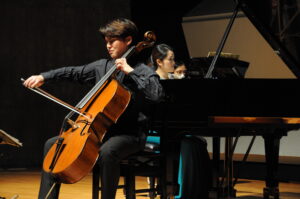 No one stood up in a hurry from the almost filled seats at the recital, and after the vague apology by him, we listened deeply to Rachmaninoff’s “Vocalise”, then called the players to the stage with applause many times.
No one stood up in a hurry from the almost filled seats at the recital, and after the vague apology by him, we listened deeply to Rachmaninoff’s “Vocalise”, then called the players to the stage with applause many times.
By the way, I would like to make a special mention of the wonderfulness of Kaihara’s piano at this recital.
I was taught that the true musicians are now growing up in Japan, from her musicality and technique (colorful tones, phrasing, etc.). She let the cellist sing fully and always lived with him as one music, using minute sensitiveness. I snapped my fingers after finding out on the program that she studied the ensemble under Hiroshi Kato (amazing master).
And, how beautiful she was to give a small warm applause to his apology.
There is almost nothing we can do for Ukraine.
However, a song moves a human’s heart, and the trembling spreads over and over.
If we have as many musicians as possible who try to be with the various human feelings underlying the song, it will softly move someone to better way quietly and deeply, I’m sure.
*) On December 25, 1989, in East Berlin, Bernstein changed the word ‘Freude (Joy)’ to ‘Freiheit (Freedom)’ of the “Ode to Joy”, and played it as “Ode to Freedom” with a joint orchestra, choir and singers who came from all around the world.
(2022/3/20)
—————————————-
Hideaki Fujiwara Cello Recital
2022/2/26 @ Tokyo Bunka Kaikan Small Hall
<Performers>
Hideaki Fujiwara (vc), Yukino Kaihara (pf)
<Program>
Schumann: Adagio and Allegro in A flat major, Op. 70
Janacek: Fairy Tale JW VII / 5
Prokofiev: Sonata in C major, Op. 119
~~~
Rachmaninoff: Sonata in G minor, Op. 19
(encore)
Rachmaninoff: Vocalise
——————-
Text : Mariko Okayama
Born in Tokyo, graduated from Toho Gakuen School of Music, majoring in music aesthetics. After working as an assistant at the university, she started writing critiques in “Mainichi Shimbun” and the music magazine “Ongaku no Tomo”. She won the 1st Newcomer Aword for Criticism in the music magazine ” Ongaku Gendai”. She went to Vienna in 1987 and Munich in 1992. She was the editor and publisher of the music critic newspaper “Breeze “ from 1999 to 2002. She was a lecturer at Nihon University College of Humanities and Sciences from 1994 to 2010. She served as the Deputy Editor-in-Chief of the web magazine ”JAZZ TOKYO ” from 2004 to 2015, after which she launched and became the Editor-in-Chief of this magazine “Mercure des Arts” in the same year. She has written many books on contemporary Japanese composers and others. She is a member of the Tokyo Music Pen Club.
Translator:Eiko Sudoh
While studying at Tokyo National University of Fine Arts and Music, school of Musicology, Eiko worked as a pianist with many composers who were the same age as her, and also learned broadly about aesthetics, ethnology, and management of music. In 2004, she won the ninth JILA Music Competition Contemporary Music Special Award, the first prize for the sixth contemporary music performance contest “Competition VI”, and won the 14th Asahi Contemporary Music Award. After that, Eiko studied contemporary music in Boston under the grant from Nomura International Cultural Foundation, and in New York as a scholarship student of Asian Cultural Council in 2008. The following year, she played at Carnegie Hall as a guest performer of the YouTube Symphony Orchestra. Eiko has written for the series “Piano Song MADE IN JAPAN” with sound source on PTNA website since 2006. Also she released her first CD album “Let’s play the toy piano ♪”(Columbia) in 2012. After working as a lecturer at Senzoku Gakuen High School Music Department, Wayo Women’s University and Tokyo City University, she moved to Los Angeles in 2017 and returned back to Tokyo in 2021.

